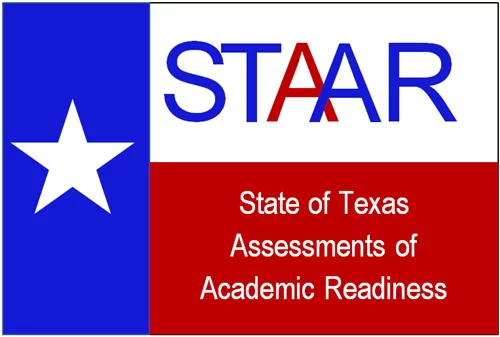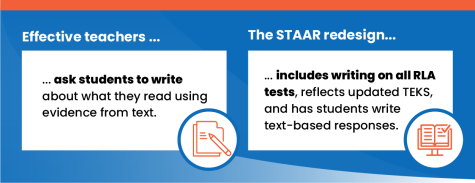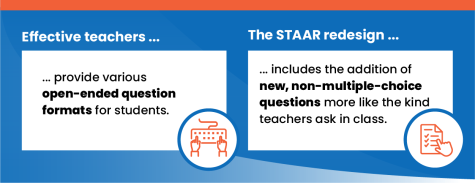STAAR testing moves online
Students will take state assessments on Chromebooks instead of usual paper tests

The Texas state assessments will be online beginning 2023.
April 4, 2023
Texas students are used to taking the STAAR test–but things will look a bit different this year. Instead of a technology-free testing environment, students will take their exams on a computer.
Besides being digitized, the formatting of the exam will look completely different than the previous exams. House Bill 3906 capped the amount of multiple choice questions at 75 % of the test, and all other questions will be dropdown, free response other difference is how the students answer the questions.

“The changes to the test’s questions will not make the test harder,” testing coordinator Jennifer Hester said, “it will just change how questions are asked and answered.”
The exams will be administered through the kiosk mode on the Chromebooks, which creates a secure browser within the system for a tamper proof environment. The STAAR end-of-course exam is required for graduation the state of Texas.

“I think online testing is going to be an issue,” AP U.S. History teacher Kesa Kemp said. “Once we get millions of kids in the state of Texas on, is it actually going to work? That’s one of my biggest concerns, is that we are going to have all kinds of technology issues.”
The first exam is English I on April 18, followed by English II on April 20.
“Taking the STAAR online this year is definitely going to be a new experience,” junior Yasmin Alicea said. “All of my STAAR tests have been on paper with multiple choice answers. The state has changed our test and expects us to still do good when this is new territory.”
According to the Texas Education Agency, online testing will provide faster results, support accommodations and flexible scheduling.
“I will say that we are in an age of technology,” Hester said. “Everything is digitized. We email, communicate digitally. Most everybody, if they’re an hourly employee, clock in and clock out digitally. There is nothing that is strictly a paper interaction [anymore].”

